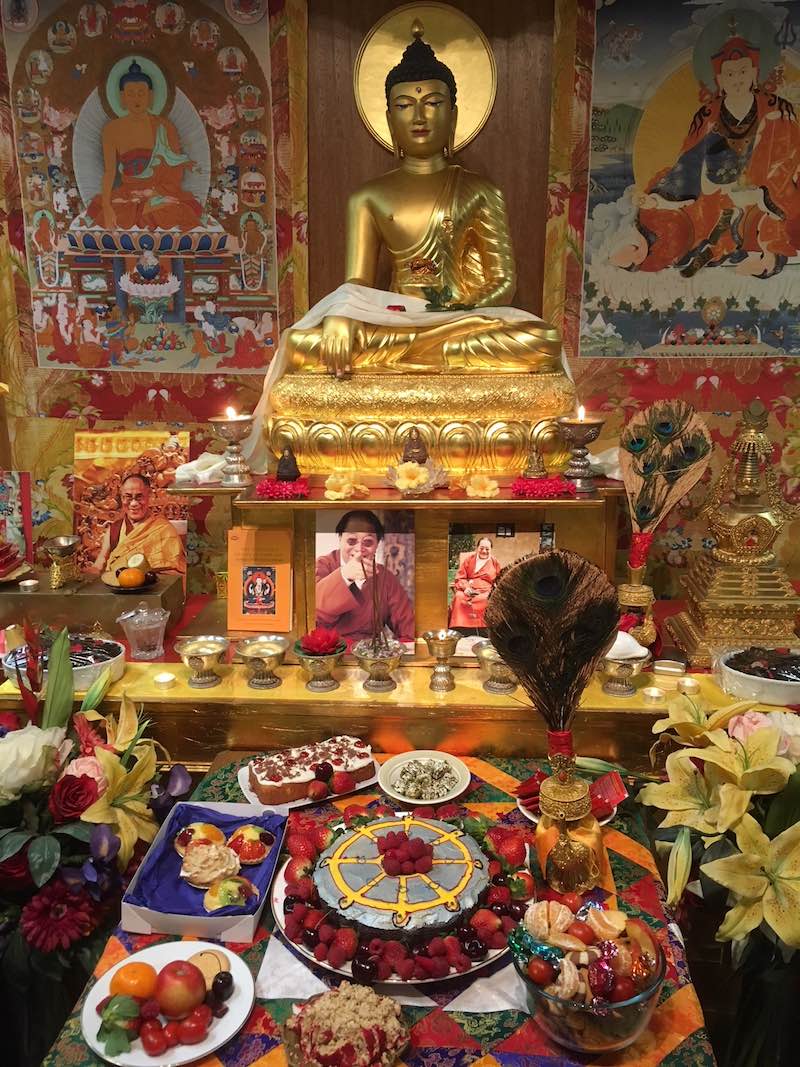
The practice of tsok is a method of swiftly and directly accummulating merit and wisdom and purifying obscurations. The Sanskrit word for tsok practice is ganachakra, which in Tibetan is tsok kyi khorlo. The word 'tsok' means an accumulaton or a gathering, and an assembly or group, and the word 'khorlo' literaly means 'wheel'. So the literal translation is something like 'wheel of accumulation'.
The teachings explain that 'tsok' refers to four different types of gathering: those of (i) practitioners, (ii) offering substance, (iii) deities and (iv) merit and wisdom.
We consider that the place where the practitioners gather is not an ordinary room or building but a sacred place where Guru Rinpoche himself practices the tsok feast, in the company of an infinite number of dakas and dakinis.
The offering substances refer to food and drink that will be offered by the practitioners during the practice. It is said that edible substances represent skilful means and the liquids represent wisdom. The teachings stress that we should be generous in our offerings and not offer just a little amount with a miserly attitude.
The Rigpa sangha practice tsok on the 10th and 25th days of the lunar month and on certain days with particular spiritual significance in the Tibetan Buddhist calendar.
You can sponsor these practices and share in the accumulation of merit and wisdom by making a donation below.